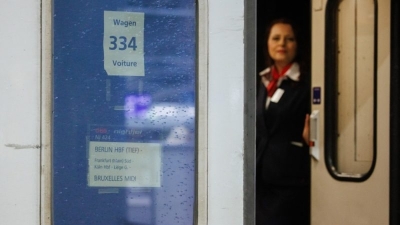European Commission defends Italian fiscal policy despite country’s economic struggles

The European Commission defended its four-out-of-five star rating for Italy’s COVID relief plan, known as the “super bonus” tax scheme, to Euractiv Italy, despite recent data detailing the fiscal policy’s staggering cost to the Italian state.
To mitigate the economic impact of the COVID-19 pandemic on households and businesses, the second Conte government introduced the “super bonus” tax scheme in 2020, allowing homeowners to deduct 110% of the cost of renovating their homes from their taxes.
Hailed as groundbreaking and backed by all political parties at the time, the scheme has gradually come under intense scrutiny, with British economic advisory firm Oxford Economics describing it as “probably the worst tax policy measure implemented in the country in the past decade.”
The scheme’s implementation exceeded initial cost estimates, ballooning to more than six times the planned budget. Critics argue that this unexpected burden on the state budget has exacerbated inflation and opened the floodgates to fraud in the construction industry.
The Commission, for its part, published a report on the scheme in 2021, stating that “Overall, the Superbonus 110% scheme is rated a ‘4-star good practice measure’ on a scale of 1 (low) to 5 (high).” The same rate was given for transferability to other countries, meaning its framework could be quickly adopted by other governments wanting to implement a tax relief scheme.
“The ratings in the factsheet were based on the fact that, at the date of the report, the scheme had had notable successes in attracting a high and growing volume of applications and in helping to increase construction sector activity”, a Commission spokesperson told Euractiv.
“It did not, however, rate the budget impact of such a scheme for Italy or any other country”, the spokesperson added.
However, for the government of Prime Minister Giorgia Meloni, the ‘super bonus’ scheme is the main culprit in the ongoing struggle to reduce Italy’s public debt. The “Super Bonus” is partially financed with Recovery and Resilience Facility funds for the Italian recovery and resilience plan (RRP).
Meanwhile, the spokesperson said the Commission is analysing the drivers in deficit data.
“According to the data published by ISTAT, which has not yet been validated by Eurostat, the difference between ISTAT data and the Draft Budgetary Plan forecast appears to be explained by higher capital expenditure (i.e. public investment and investment subsidies; the latter includes government subsidies for private investment such as the ‘Super Bonus’).”
“The Commission positively assessed the first target linked to the Super Bonus investment in the context of the fourth payment request,” a Commission spokesperson said, adding that “the Commission will assess the satisfactory fulfilment of the final target in due course in the context of the upcoming ninth payment request.”
Countries not meeting milestones and targets for social and economic reforms may not receive RRF funding.
(Alessia Peretti | Euractiv.it)
Read more with Euractiv




